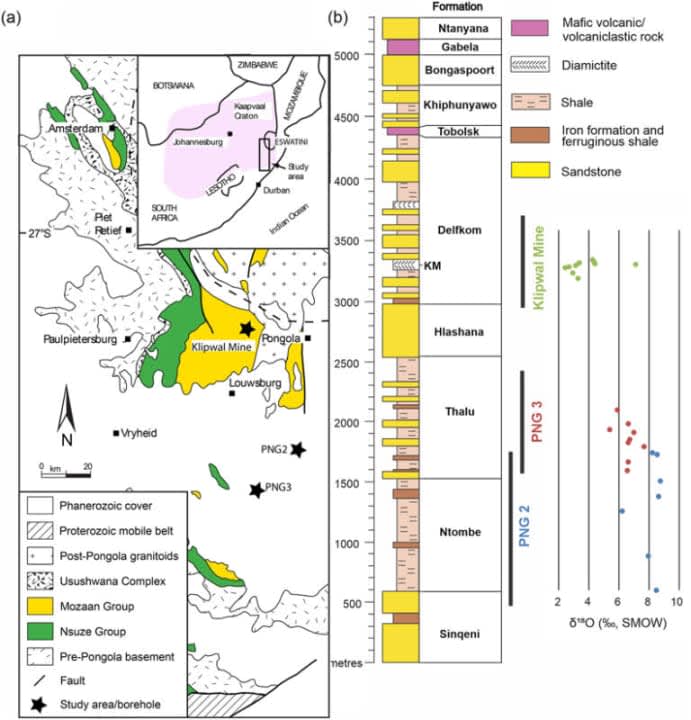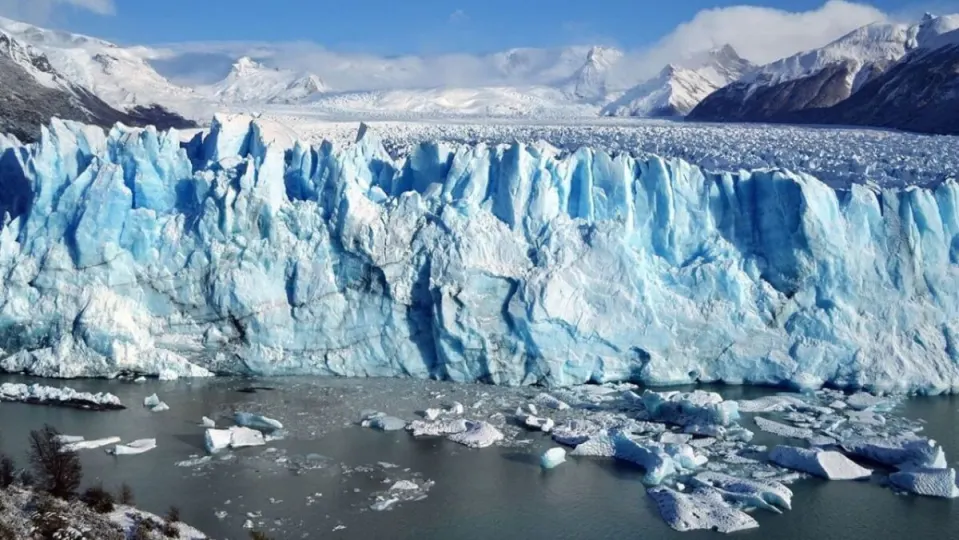If we asked you about the age of the world’s oldest glacier, playing ‘The Price Is Right’ style, how many years do you think it would be? 1 million years? 10 million years? 100 million years? Well, you’d be way off. In fact, the world’s oldest glacier is billions of years old.
A recent research published in the scientific journal Geochemical Perspectives Letters has discovered glacial sediments dating back 2.9 billion years in the gold deposits of northeastern South Africa.
The analyzed samples come from the “Pongola Supergroup,” a collection of sedimentary and volcanic rocks formed approximately 3.2 to 2.8 billion years ago, in the Mesoarchean era.
“We found extremely well-preserved glacial deposits near the gold deposits in South Africa,” explains Ilya Bindeman, co-author of the study and professor of isotopic geochemistry and volcanology at the University of Oregon (United States). “This is one of the few areas that remains relatively intact and unchanged since the early days of Earth.”

After analyzing a series of samples from sedimentary rocks in the Kaapvaal craton, as well as samples from the same region provided by AngloGold-Ashanti, a mining company, the researchers discovered the world’s oldest dated glacial moraines (the remnants left by a glacier as it melts and gradually retreats).
But how could a glacier have formed in the area that is now South Africa? One of the theories maintained by the group of researchers is that this part of South Africa would have been near the poles 2.9 billion years ago, although this is not the only possibility.
“Another possibility is that the entire Earth was in a ‘snowball Earth’ period, where low atmospheric concentrations of carbon dioxide and methane caused a ‘reverse greenhouse effect’ that froze much of the planet,” explains Axel Hofmann, co-author of the study and associate professor in the Department of Geology at the University of Johannesburg (South Africa).
“If this is the case, it would be the earliest known global cooling period of this kind.”
Some of the links added in the article are part of affiliate campaigns and may represent benefits for Softonic.


